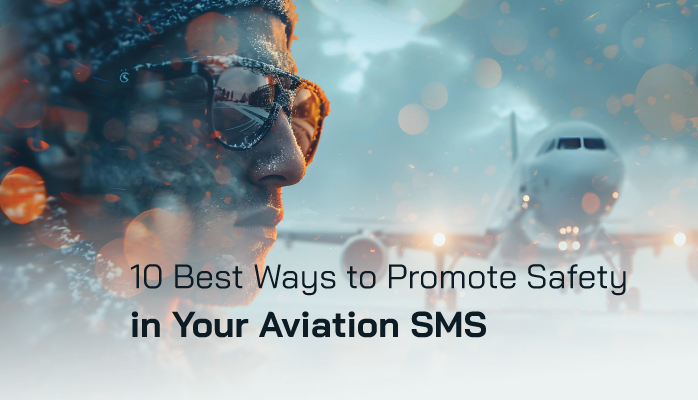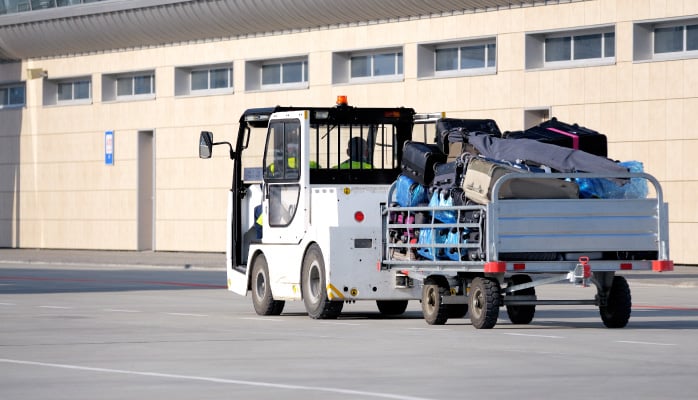Why Managers Struggle With Safety Promotion

Safety Promotion is definitely the least appreciated of the 4 Pillars of SMS.
Almost without fail, promoting safety takes the “back seat” in most aviation safety programs because civil aviation authorities and auditors are significantly more interested in seeing that you comply with:
- Safety Policy,
- Safety Risk Management, and
- Safety Assurance.
Secondly, safety managers feel:
- Short on time/manpower
- Short on budget
- Short on resources for promoting
- Short on know-how for promoting the SMS
But the truth is that there are easy and inexpensive ways to promote safety. The precedent of leaving Safety Promotion as an afterthought is an unfortunate Norm in the aviation industry, as Safety Promotion is immensely important for:
- Hazard reporting culture;
- Safety performance; and
- Safety culture.
There is a direct link between safety promotion and building culture and performance. Here are the 10 best ways to promote safety in aviation SMS.
Have a Way to Communicate Important Safety Updates
As time passes, you will inevitably be confronted with new information when operations and/or the environment changes. This new information should be communicated to employees so that they are aware of new risks.
Safety communication in aviation SMS:
- Raises safety awareness;
- Keep open dialogue between safety management and employees; and
- Demonstrates management commitment to safety.
Related Aviation SMS Safety Promotion Articles
- Why Safety Promotion Requires More Focus in Aviation SMS
- Why Safety Promotion Component Is the Overlooked Pillar in Aviation SMS
- Safety Chart: Stay on Top of Aviation Safety Promotion With SMS Newsletters
Hold Short Safety Meeting Each Week
Studies show a direct correlation between consistent safety meetings and safety. Safety meetings should be held each week. Aviation safety meetings:
- Don’t have to be formal;
- Offer a venue to directly interact with the employees who are facilitating the SMS;
- Allow you to communicate important information; and
- Allow you to use the meeting to promote the SMS in other ways.
Post Safety Posters Around Operational Environment
Safety posters are an easy way to promote the safety program on an ongoing basis without any extra work. Creating a safety poster only requires an initial investment of time and/or resources. Once created, you have them as long as needed.
To create safety posters, you simply need to either:
- Have a designer or marketer in your company design one; or
- Pay an outside company to design it.
Once designed, you simply need to print out some posters and put them in the operational environment.
Follow Up With Reporters

Following up with reporters is extremely important for promoting your SMS. Employees who report issues should be followed up with:
- Directly after they report an issue, such as to thank them for their report; and
- After their report has been processed through your issue management cycle, such as to give an update on how their report was managed.
Following up allows you to:
- Recognize employees who report;
- Having consistent communication;
- Reinforce a non-punitive reporting policy; and
- Show that employees’ reports actually matter.
Send Out Safety Newsletter Each Month
Aviation safety newsletters are an underused tool in safety promotion:
- They are easy and don’t take much time;
- They should function as a sort of “digital safety meeting”;
- You can create safety newsletter templates so that distributing newsletters is simply a matter of filling in the information; and
- It’s a task that can easily be delegated.
Interact With Front Line Employees at Least Once Per Week
Simply taking the time to talk to employees on a personal level gives a “face” to the safety program. If employees know that the SMS is personal, it can help break down silos and resistance to the program, especially in cases where there is corporate culture.
Interacting with front-line employees can be:
- Just talking with them;
- Providing feedback; and
- Taking safety surveys.
What’s important here is not so much how you interact, but that you interact in a way that is positive and reinforces a good image of the safety program.
Keep Log of Lessons Learned
Lessons learned are important pieces of safety information that should be communicated to employees as your SMS discovers them. Lessons learned are, simply put, safety concerns or behaviors that are exemplary of important safety concepts.
Lessons learned can be lessons that were learned and resulted in positive or negative outcomes. Either way, lessons learned should give your employees pause and are a valuable aviation safety training tool that you can communicate in:
- Meetings;
- Newsletters; or
- A convenient, easy-to-access location.
Make Sure All New Employees Receive SMS Training

Initial SMS training is an important step in getting new employees familiar with your SMS:
- What it is;
- How to be involved;
- Their role in the SMS, such as submitting safety issues; and
- The goals of the SMS.
Initial training usually touches on things like:
- How to submit issues;
- Important safety policies and procedures that should be reviewed; and
- What happens after reports are submitted?
Related Aviation SMS Training Articles
- Learn Why Initial SMS Training Is So Crucial for Aviation SMS Success
- Why Employees Can’t Stand Aviation SMS Training
- Advanced Topics for Human Factors Aviation SMS Training
Get Consistent Feedback From Employees
Getting feedback from employees is an especially useful tool for breaking down poor management/employee relations and corporate culture. Feedback:
- Helps you understand the reputation of your SMS;
- Allows employees to feel involved in your SMS; and
- Provides you with a list of potential areas to improve your SMS.
You can acquire feedback through:
- Meeting notes;
- Talking to employees; and
- Safety surveys.
Last updated in December 2025.






